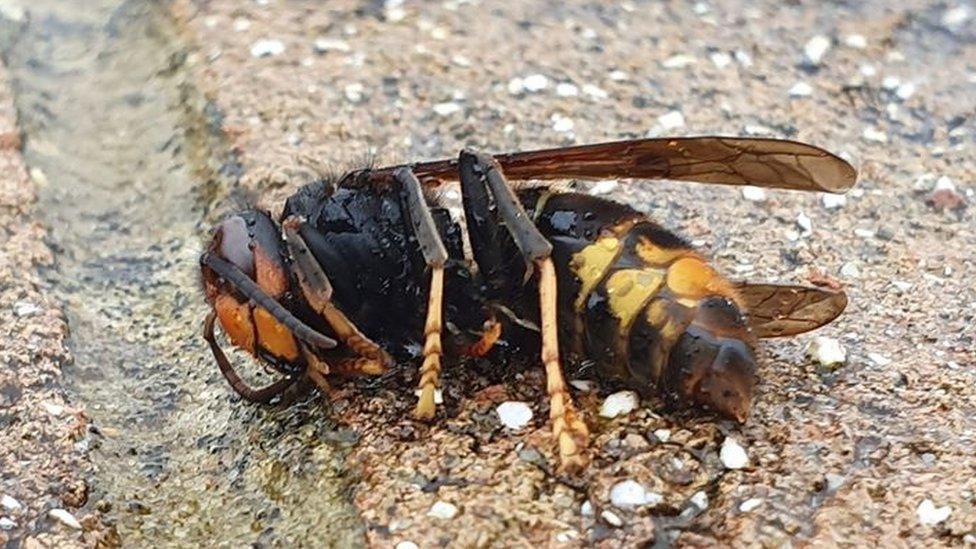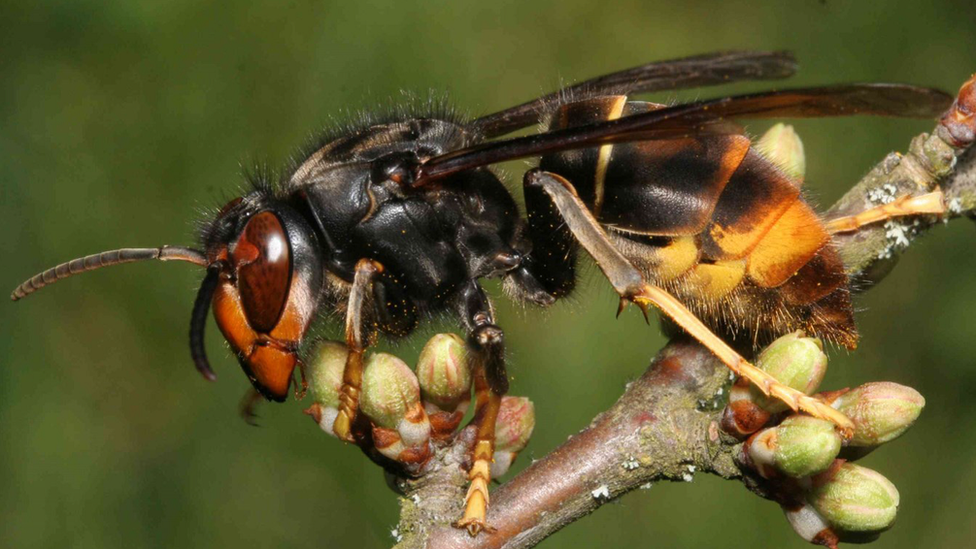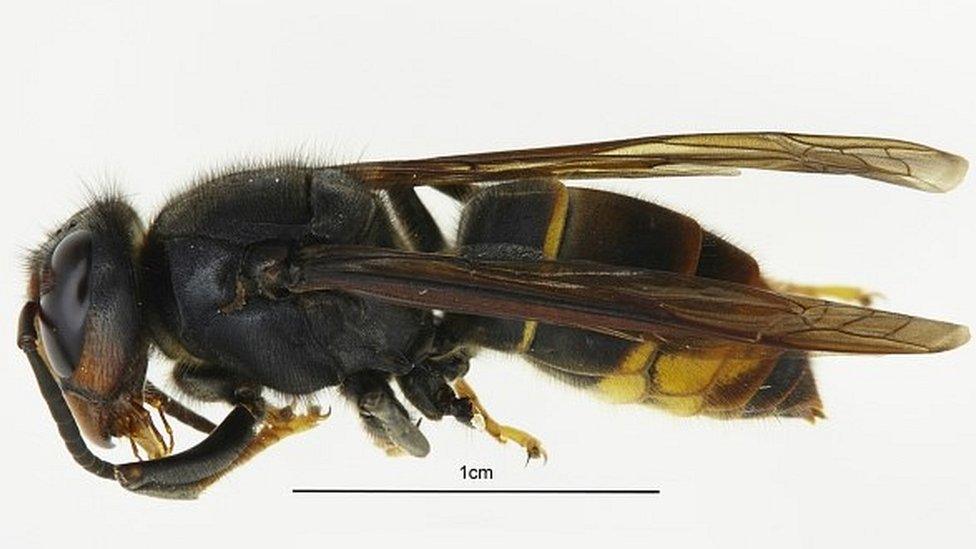Jersey must 'learn to live' with Asian hornets
- Published

The first Asian hornet of 2020 across the British Isles was found on a wall in St Brelade on Sunday
Islanders in Jersey should expect to "live with" Asian hornets in years to come, an expert has said.
The number of nests has risen annually since the insect's arrival in 2016, reaching a total of 83 in 2019.
Alastair Christie, Asian hornet co-ordinator for the Jersey government, said their steady invasion meant eradication was unlikely in the future.
The first confirmed sighting of the insect in 2020 across the British Isles was made in Jersey on Sunday.
The Asian hornet feeds on honey-bees, affecting plants that require pollination.
The Government of Jersey has tracked the insect for three years, destroying 17 nests in 2017 and 55 nests in 2018.

The invasive species has a "voracious appetite" for honey-bees
Mr Christie said the government would "eradicate as many as possible", but it remained in a "control phase".
He said: "If we miss a nest at the end of the season, the likelihood is we have an explosion locally.
"Every single nest is likely to result in six new successful nests the following season."
"In the long run, we're likely to live with them to some extent," he concluded.
A spokesman for the Department for Environment, Food & Rural Affairs (Defra) confirmed there had been no sightings in the UK in 2020.
Islanders in Jersey are urged to report any sightings through the appropriate channels, external.

How to identify an Asian Hornet
Queens up to 3cm (1.2in) in length; workers up to 2.5cm (1in)
Velvety dark brown or black mid-body
Black head with an orange/yellow face
Brown rear bordered with a fine yellow band
Brown legs with yellow lower segments

.
- Published1 March 2019

- Published5 July 2019

- Published20 September 2016
